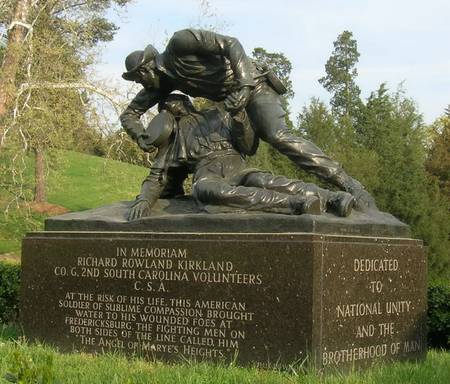Somebody posted this about the poem In Flanders Fields, only one and a half minutes long, and very moving.
http://www.youtube.com/watch?v=K6BlOkpdkg8
But that isn’t the whole story, is it?
When i was a boy, i responded to this poem in the way that the author meant us to respond. But that was when i was very young.
Later, i came to see the second half of the poem differently. “Take up our quarrel with the foe” — is that idea not the cause of much of the misery of the world? Balkan nations quarreling 700 years and taking pride in the fact? Hatfields and McCoys? Families bitterly nursing old grudges, refusing to forgive and forget? Be it the losers in the American Civil War, or the children of refugees, or the victims of the Nazis or the Communists or whatever, there is always some grievance we have the option to fail to forgive, always someone else’s tragedy we can feel righteously indignant over.
But what if the foe is not other people but hatred itself? What if, as Hemingway said somewhere, we come to realize, as we grow older, that life is not a battleground but a morass? This is still a great poem, and a still-living monument to a generation of young men slaughtered, and to a generation of men, women and children who got in the way of the armies and were ruthlessly discarded — not to talk of the animals that suffered and died along with them.
There’s no use scapegoating. We can blame militarism, or the merchants of death, as the arms makers were called in the 1930s. We can blame the Nazis and the Communists and the rich and the illuminati and the ignorati. Blame who you wish, and maybe you will be right and (likely) you will be at least somewhat right, somewhat wrong. But if we learned any single thing in that blood-drenched century, surely it was that if we need to take up a quarrel with a foe, it is a foe that is within ourselves, that seems to be part of human nature, the very inclination that causes us to conduct these lethal quarrels in the first place.
As the poet said, but in a different sense than he meant at that moment:
If you break faith with us who die, we shall not sleep, though poppies grow in Flanders fields.
